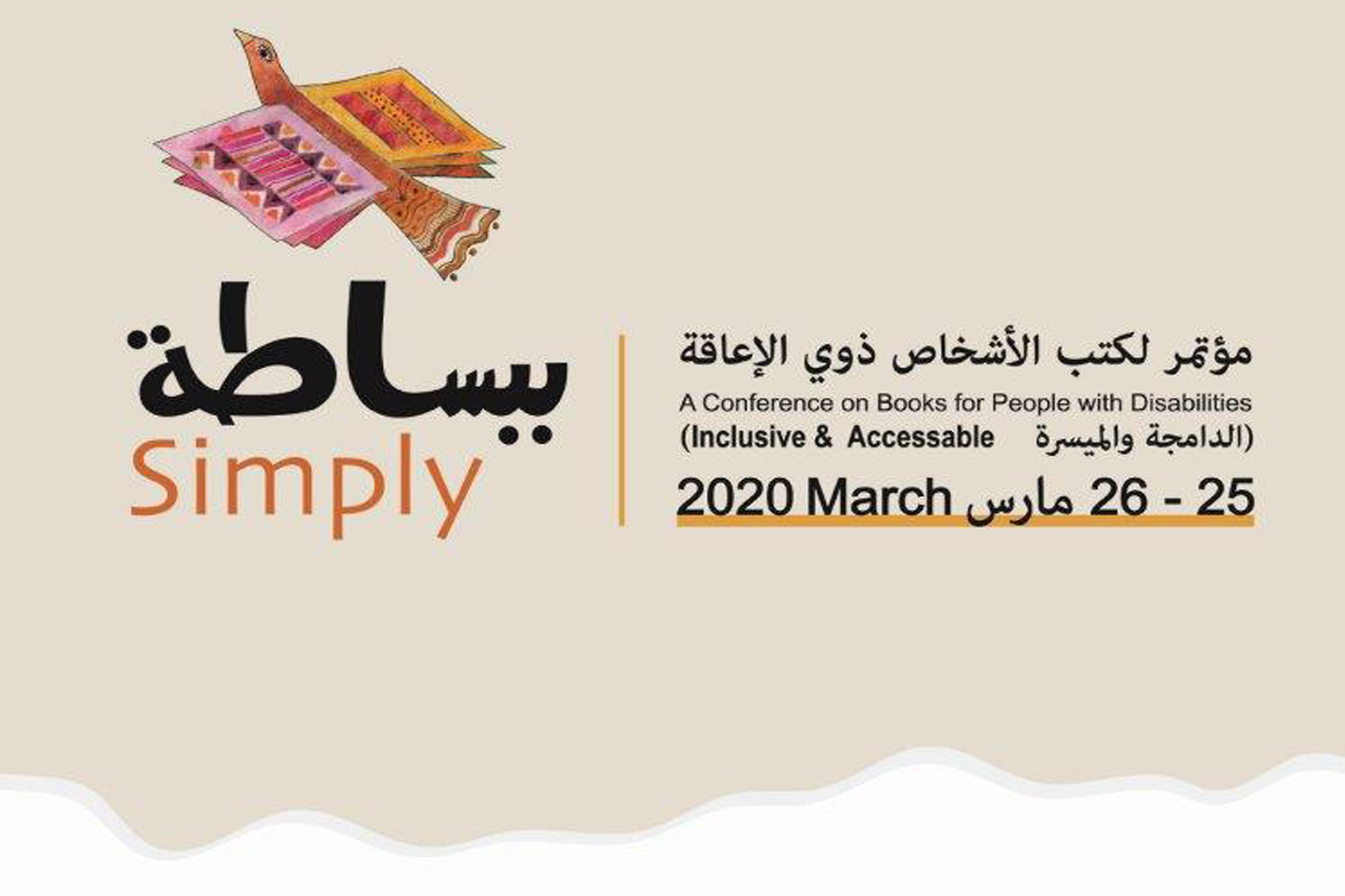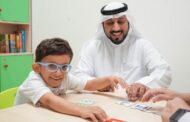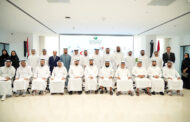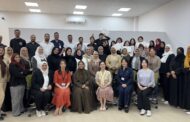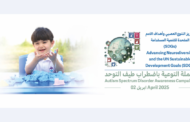مؤتمر ببساطة (حول الكتب الدامجة والميسرة للأشخاص ذوي الإعاقة)
بمناسبة اختيار الشارقة عاصمة عالمية للكتاب 2019، تنظم مدينة الشارقة للخدمات الإنسانية يومي 25 و26 مارس 2020 مؤتمرها العلمي السنوي الذي سيتناول هذه السنة تحت مسمى (ببساطة) موضوع كتب الأشخاص ذوي الإعاقة بأشكالها المختلفة سواءً كانت الدامجة التي تتناول قضايا وحقوق الأشخاص ذوي الإعاقة، أو الميسرة بتقنيات القراءة المساندة والموجهة إلى الأشخاص ذوي الإعاقة بشكل مباشر.
يتصدى المؤتمر لتحديات صناعة تلك الكتب، ودراسة واقع إمكانية وصول الأشخاص ذوي الإعاقة إلى مصادر المعرفة المختلفة، ومدى تيسيرها لهم حسب إعاقاتهم المختلفة. وذلك من خلال جلسات نقاشية وورش عمل مختلفة وجلسات عمل تقدم فيها الأوراق العلمية بعد أن يتم تحكيمها من قبل لجنة متخصصة.
أهداف المؤتمر
- تعزيز حق الأشخاص ذوي الإعاقة في الوصول إلى مصادر المعرفة والقراءة المختلفة.
- توعية القائمين على صناعة الكتاب بأهمية وضرورة الوصول إلى مختلف فئات المجتمع.
- الخروج بمبادرات وحلول وتوصيات عملية لمجموعة من التحديات التي يواجهها الأشخاص ذوو الإعاقة والأشخاص من ذوي صعوبات التعلم خلال عملية القراءة.
محاور المؤتمر
- واقع إمكانية وصول الأشخاص ذوي الإعاقة إلى مصادر القراءة:
يتناول هذا المحور واقع وصول الأشخاص ذوي الإعاقة إلى مصادر المعرفة والقراءة، ومدى فعالية وتطبيق المعاهدات والاتفاقيات التي تضمن لهم حق الوصول، من خلال احصائيات وأرقام ودراسات توضح التحديات والصعوبات، مع ضرورة اقتراح حلول تمكن الأشخاص ذوي الإعاقة من الوصول إلى حقهم في المعرفة.
2. فعالية المهارات القرائية للأشخاص ذوي الإعاقة:
تُعرف القرائية (Literacy) بأنها القدرة على القراءة والكتابة والتواصل، وتعني أيضاً القدرة على استخدام اللغات والأرقام والصور والوسائل الأخرى للفهم والتعامل مع الرموز الثقافية الأساسية، وتبين مؤخراً أن هناك ما يقارب 12% من سكان العالم لا يملكون مهارات قرائية، منهم 126 مليون شاب لا يملكون هذه المهارات، ولا توجد إحصائية حقيقية حول المهارات القرائية للأشخاص ذوي الإعاقة، ويتناول هذا المحور مفهوم القرائية وواقع المهارات القرائية لدى الأشخاص ذوي الإعاقة وعلاقتها بمدى وصولهم إلى المعرفة، والمبادرات التي تلعب دوراً في تعزيز القدرات القرائية، ومدى قدرة تقنيات القراءة المساندة على تعزيز تلك المهارات.
3. دور نشر الكتب الميسرة مسؤولية مجتمعية أم تخصص:
يسلط هذا المحور الضوء على جهود دور النشر المختلفة في تقديم كتب موجهة للأشخاص ذوي الإعاقة، ومشاريع القراءة التي تدمج الأشخاص ذوي الإعاقة مع أقرانهم من غير المعاقين، وكيف استطاعت هذه النماذج أن تلبي حق وصول الأشخاص ذوي الإعاقة لمصادر المعرفة المتنوعة، والتحديات التي تواجه هذه الصناعة، ومدى قدرة الأشخاص ذوي الإعاقة للوصول إلى تلك التقنيات.
4.صورة الأشخاص ذوي الإعاقة في الكتاب العربي:
يتناول هذا المحور صورة الأشخاص ذوي الإعاقة في الكتاب العربي، وكيفية تعامل الأدباء معها، سواء في أدب الأطفال أو في أدب الكبار، وما هي الصورة الحقوقية المناسب تناولها في الأدب حول الأشخاص ذوي الإعاقة.
5. مكتبات شاملة ودامجة:
- يستعرض هذا المحور أهم الخطوات الواجب اتخاذها لتوفير مكتبة شاملة ودامجة لكافة فئات المجتمع وأهم الشروط المطلوبة لتحقيق مكتبات ميسرة فاعلة وحقيقية.
مواصفات المشاركات
- أن تتسم بالجدية واتباع معايير البحث العلمي وموثقة ضمن الأصول المتبعة للأبحاث العلمية بذكر المصادر والمراجع، بالإضافة إلى قياس أثر ونتائج الدراسة المطبقة، والتوصيات.
- أن تكون الأبحاث العربية على شكل ملف وورد بخط (Simplified Arabic) مقاس 14، وتكون الأبحاث باللغة الانجليزية بخط (Times New Roman) مقاس 12.
- يجب أن تشتمل الصفحة الأولى على عنوان البحث، واسم الباحث، واسم المؤسسة / الجامعة، والعنوان البريدي، ورقم الهاتف والفاكس، والبريد الالكتروني كذلك بيانات المؤتمر. ويبدأ البحث بالملخص، ثم تليه الكلمات المفتاحية، ثم بقية البحث مبتدئاً بالمقدمة، ومنتهياً بقائمة المراجع.
- بالنسبة للبحوث باللغة العربية، يُرجى عدم الاكتفاء بالترجمة العربية للمصطلحات الإنجليزية في حالة ورودها في البحث، بل لابد من تقديم أصل المصطلح الإنجليزي المستخدم بلغته، وذلك تجنباً لإشكاليات تعريب المصطلحات الأجنبية.
- يرجى ارفاق السيرة الذاتية للباحث أو مقدم ورقة العمل كاملة، بالإضافة إلى ملخص السيرة الذاتية باللغتين العربية والإنجليزية بما لا يتجاوز صفحة واحدة (لا تتعدى 100 كلمة)، ويتحمل الباحث مسؤولية المحتوى مسؤولية تامة، ويحق للجان العاملة في المؤتمر اختصار السير الذاتية بما يتلاءم مع احتياجات المطبوعات أو التدقيق الإملائي والقواعدي.
- على كل باحث الالتزام بالتدقيق الإملائي واللغوي لبحثه، حرصاً على سلامة اللغة ودقة التعبير واستخدام المصطلحات الملائمة.
- ارسال صورة شخصية عالية الدقة بالإضافة إلى صورة عن جواز السفر (عند الموافقة).
- ارسال فيديو قصير بجودة عالية مدته لا تزيد عن دقيقة يتحدث فيه الباحث عن نفسه للاستخدام أثناء الإعلان عن المؤتمر في وسائل التواصل الاجتماعي.
- تعبئة النماذج اللازمة للحصول على الموافقات الأمنية وتأشيرات الزيارة.
قبول ملخصات الأبحاث وأوراق العمل
تقبل ملخصات البحوث وأوراق العمل ضمن الضوابط التالية:
- يجب أن تتناول الأبحاث العلمية والتجارب أو ورش العمل أحد المحاور الخاصة بالمؤتمر، وأن تكون محققة لأهدافه بشكل مباشر، وتخضع الأوراق والأبحاث المقدمة لتقييم لجنة علمية متخصصة لها الحق برفض أية مشاركة دون إبداء الأسباب.
- تقبل المشاركات التي على شكل تجارب علمية تم تطبيقها خلال العمل في مجال الإعاقة، أو الأبحاث العلمية الجادة في هذا المجال وتم قياس نتائج وأثر هذه التجربة بشكل واضح وعلمي.
- تفضل المشاركات التي تقدم لأول مرة وإن كان البحث قد قدم أو نشر سابقاً في محافل أو مجلات علمية يرجى التفضل بذكرها على ألا يتجاوز عمر البحث العلمي عامين، مع تقديم الأفضلية للدراسات الأحدث والتي لم تقدم لجهات أو مؤتمرات أخرى.
- يجب أن يكون مقدم ورقة العمل عاملاً أو باحثاً في مجال الإعاقة أو الكتب الميسرة والدامجة وذا خبرة تؤهله للمشاركة.
- تقبل الأبحاث العلمية أو أوراق العمل باللغتين العربية والانجليزية ويكون للبحث ملخص باللغتين العربية والانجليزية (لا يتجاوز 250 كلمة) ويتضمن | عنوان البحث وهدفه وعينته ومنهجه العلمي وأهم النتائج.
- يتم استبعاد أية ورقة عمل تصل متأخرة أو لم تستوف الشروط المطلوبة.
- لا يعتبر القبول المبدئي نهائياً إلا بعد تقديم الورقة كاملة والرد النهائي من طرف المدينة بالموافقة.
- تقديم الورقة كاملة وضمن الفترة المقررة.
- ألا يزيد عدد صفحات الدراسة المرسلة عن 25 صفحة بما فيها المراجع.
- يجب إدراج أسماء جميع المؤلفين المشاركين بالورقة وعليهم تفويض شخص واحد خطياً فقط للمشاركة بالمؤتمر وعرض الورقة بالنيابة عنهم.
الخطة الزمنية
من 01 أغسطس ولغاية 15 ديسمبر 2019
استقبال ملخصات الأوراق والاختيار منها
15 ديسمبر 2019
مراجعة الملخصات من طرف اللجنة العلمية والإعلان النهائي عن الملخصات المعتمدة
01 يناير 2020
الإعلان عن الجدول الخاص بالمؤتمر / الأولى
من 01 إلى 31 يناير 2020
استلام عروض البوربوينت الخاصة بالأبحاث وأوراق العمل والورش
ملاحظات عامة
- لا تقدم مدينة الشارقة للخدمات الانسانية أية مكافأة مالية لأوراق العمل المشاركة.
- لا تتجاوز مدة عرض ورقة العمل خلال المؤتمر 20 دقيقة مع بيان حاجة مقدم الورقة لأية وسائل أو تجهيزات فنية مطلوب توفيرها، مع ضرورة استخدام قالب العرض الخاص بالمؤتمر.
- تتكفل مدينة الشارقة للخدمات الإنسانية بتكاليف السفر والإقامة والتنقلات الداخلية وتأشيرة الدخول للمشاركين بالأبحاث العلمية أو أوراق العمل.
- تعتبر الملخصات المقدمة إلى مؤتمر ببساطة خاصة بالمؤتمر منذ لحظة تقديمها، ولا يجوز المشاركة بها في مجلة علمية أو مؤتمر علمي قبل انعقاد المؤتمر.
- يجب ارفاق السيرة الذاتية الخاصة بالباحث أو مقدم الطلب وملخص عنها.
- يرجى تحديد شكل المشاركة:
- عرض تجربة أو خبرة
- بحث
- ورشة عمل
- بوستر
6. يجب تقديم جميع الملخصات بحلول 15 ديسمبر 2019، الساعة 11:59 مساءً بتوقيت دولة الإمارات العربية المتحدة. وسيتم رفض الملخصات غير المكتملة بحلول الموعد النهائي.
يرسل الملخص وطلب المشاركة عبر البريد الإلكتروني التالي:
schsconference@schs.sharjah.ae
لمزيد من المعلومات، يرجى الاتصال بنا على:
الهاتف: 0097165660022
الفاكس: 0097165665665
“Simply” Conference on Books for Persons with Disabilities
Call for Participants
On the occasion of Sharjah World Book Capital 2019, the Sharjah City for Humanitarian Services (SCHS) is organizing a conference on books for persons with disabilities, whether inclusive books that promote the rights of persons with disabilities or books presented in formats that are accessible to persons with disabilities. The conference will be held on the 25th and 26th of March, 2020.
The conference will address the challenges of producing inclusive and accessible books, investigate the current access of persons with disabilities to different knowledge sources, and present solutions to widen this access while taking into account the diverse needs of persons with disabilities. It will be a forum for the sharing of relevant research and good practices and will include the organization of workshops for practitioners.
Conference Objectives
- Promoting the right of persons with disabilities to access different reading material and diverse knowledge sources.
- Raising publishers’ awareness of the need to ensure that different groups have access to reading material and information sources.
- Making practical recommendations and proposing solutions to address the range of reading challenges faced by persons with disabilities and people with learning difficulties.
Conference Themes
- The access of persons with disabilities to reading material and knowledge sources: To what extent do persons with disabilities currently have access to diverse knowledge sources and reading material? How effectively have the treaties and conventions that guarantee these rights been applied? What are the current main challenges and difficulties that hinder access to information? What solutions can be proposed?
- Literacy skills of persons with disabilities: Literacy is the ability to read and write but can be more widely defined as the ability to use language, numbers and images and understand basic cultural symbols. At the moment, nearly 12% of the world’s population have no literacy skills, of whom 126 million are young people. Unfortunately, there is a lack of reliable statistics and accurate information on the literacy skills of persons with disabilities in particular. What are the literacy challenges that persons with disabilities face and which in turn affect their access to reading material? What are some existing initiative that have succeeded in enhancing the literacy skills of people with disabilities? What role can the use of alternative formats and assistive technologies play in this regard?
3. Publishing accessible books: A specialist field or a community responsibility?: Many publishing houses have made it part of their mission to provide books that are accessible to persons with disabilities while others have carried out reading projects that bring persons with disabilities and their non-disabled peers. How effectively do these books meet the needs of persons with disabilities and ensure their right to access diverse sources of knowledge? What are the main challenges facing the accessible book industry? To what extent do accessible books reach persons with disabilities?
4. The image of persons with disabilities in Arabic books: How are persons with disabilities represented in Arabic literature for both adults and children? What are the images that we need to promote? What are some positive examples of existing books?
5. Inclusive and accessible libraries and reading spaces: What are the features of inclusive and accessible libraries? What steps should be taken to ensure that readings spaces are open to all groups of society?
Requirements for the final papers
- The final paper should demonstrate that the study has been conducted in a rigorous manner and using a sound research methodology. It should provide a clear presentation of research results and end with practical recommendations.
- The final paper should use proper citations and include full references.
- The final paper should not exceed 25 pages, including references.
- Abstracts and final papers should include the names of all authors. If there are two or more authors, one person should be delegated to present at the conference and his or her name communicated to the conference organizers.
- The papers may be written in either Arabic or English. Arabic papers should be submitted in a word file format, using Simplified Arabic font size 14 while papers in English should use Times New Roman font, size 12.
- The title page should include: a concise and informative title, name(s) of the author (s), the affiliations and addresses of the authors (name of institutions, postal address, telephone and fax numbers and e-mail) and conference information. After the title page, an abstract in both Arabic and English should be provided, followed by four to six keywords and finally the text of the paper. The paper should open with an introduction and end with the list of references.
- In Arabic papers, if you are using Arabic translations of English terminology, you should include the original English term in parenthesis to avoid any ambiguity due to differing translations of non-Arabic terminology.
- The authors are responsible for revising, copy-editing and proofreading their papers.
- The author(s) of the research papers should provide a short biography (a maximum of 100 words) in both Arabic and English. The authors assume full responsibility for the accuracy of the claims in these bios although the conference organizers reserve the right to shorten and proofread them if necessary.
Submission of Research Abstracts
- If you are interested in presenting an academic research paper, you will need to provide an abstract in the designated section within the application form.
- Research papers should present the results of completed empirical studies carried out in the past two years within the field of disability and books. Priority will be given to studies whose results have not previously been published or presented in a public forum.
- Abstracts should be a maximum of 250 words and provided in both Arabic and English. They need to include the title of the research, the names of all researchers, main research objectives, methodology including a description of the participants and key results.
- The abstracts received will be evaluated by a scientific committee, which reserves the right to reject any submission.
- Applicants should demonstrate prior research or practical experience, or success stories in the field of disability as well as accessible or inclusive books.
- The Sharjah City for Humanitarian Services plans to publish the conference proceedings. By submitting an abstract, you have indicated that you consent to the publication of your paper if your application is successful.
- If your abstract is accepted, you will be invited to participate in the conference. However, this acceptance is considered conditional until a draft of the final paper has been received within the given deadline and approved by the scientific committee.
Timeline
1st of August – 15th of December 2019
Call for abstracts is open
15th of December 2019
Successful abstracts are selected and applicants are informed of the decision of the scientific committee
1st of January 2020
Conference programme to be announced
1st – 31st of January 2020
All PowerPoints related to conference papers and workshops to be received
Participation in the Conference
- You may participate in one of the following ways:
– Presentation of a research paper
– Presentation of a success story or good practice
– Implementation of a workshop
– Poster Presentation
- If you would like to participate, fill in the application form and attach a recent curriculum vitae (CV)
- Your proposed intervention should be relevant to the overall topic of the conference and directly related to at least one of the themes.
- The Sharjah City for Humanitarian Services will not provide conference speakers with an honorarium but will cover all costs related to travel, accommodation, internal transfers and entry visas.
- Application forms and abstracts should be submitted by the 30th of September 2019, 11:59 pm (UAE time) and sent to schsconference@schs.sharjah.ae. Any application or abstract received after this deadline will be excluded.
Logistical arrangements for the conference
- To allow the conference organizers to make visa and travel arrangements, you should provide a high-resolution passport-sized photo along with a scan of the information page in your passport in addition to completing any required paperwork and procedures.
- Each speaker should send a high-quality video, no longer than a minute, in which he or she presents himself. This video will be used to promote the conference on social media platforms.
- Please note that each speaker will be given approximately twenty minutes to present and should plan accordingly in order not to exceed the given time.
- PowerPoint presentations should be prepared using the conference template to be provided to you. You should inform the conference organizers in advance of any aids, technical requirements or other support you might need.
- Once your abstract has been submitted and accepted, you may not submit your paper to another conference or for publication until after the conference.
The abstract and application
form shall be sent via the following e-mail: schsconference@schs.sharjah.ae
For more information, please contact us at:
Tel: 0097165660022 – Fax: 0097165665665
* We are Looking forward to receive Your Papers before 15 of December 2019






